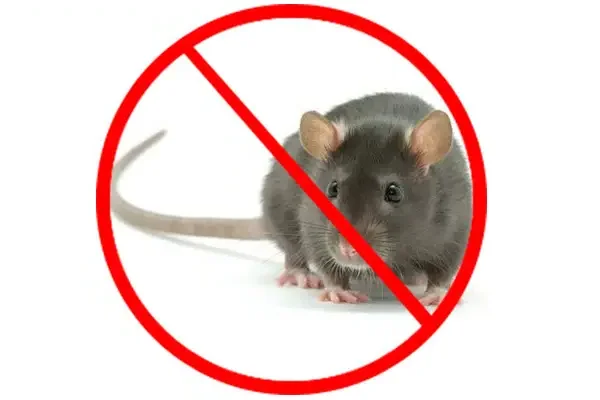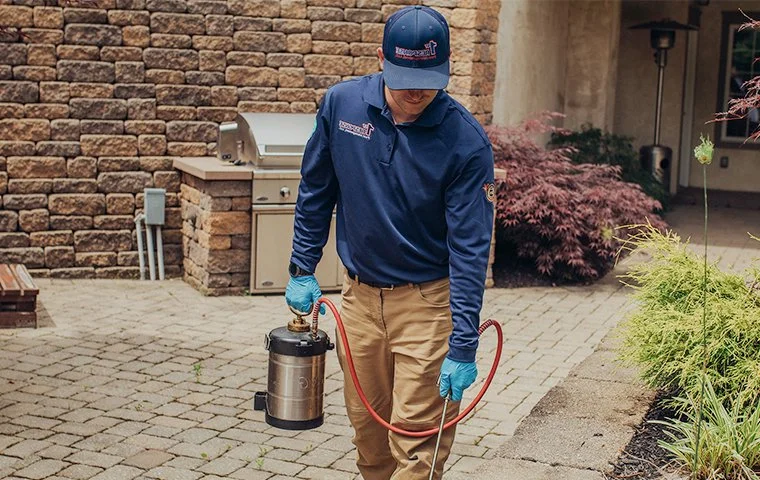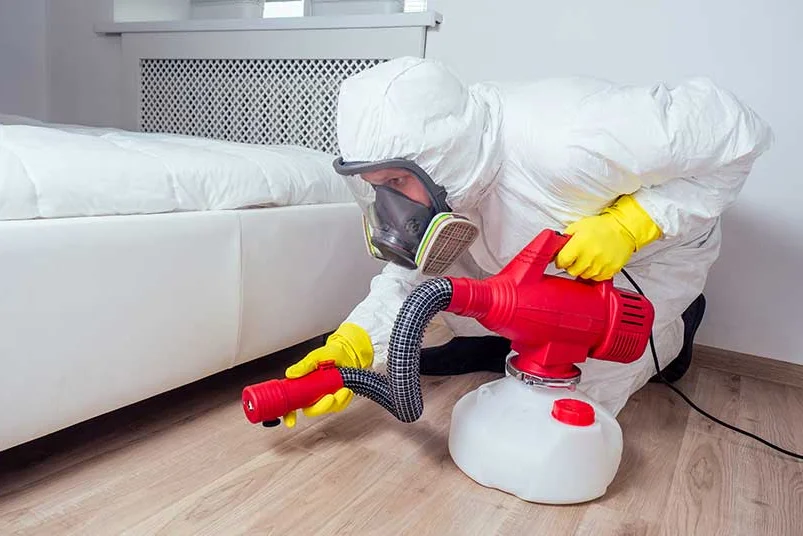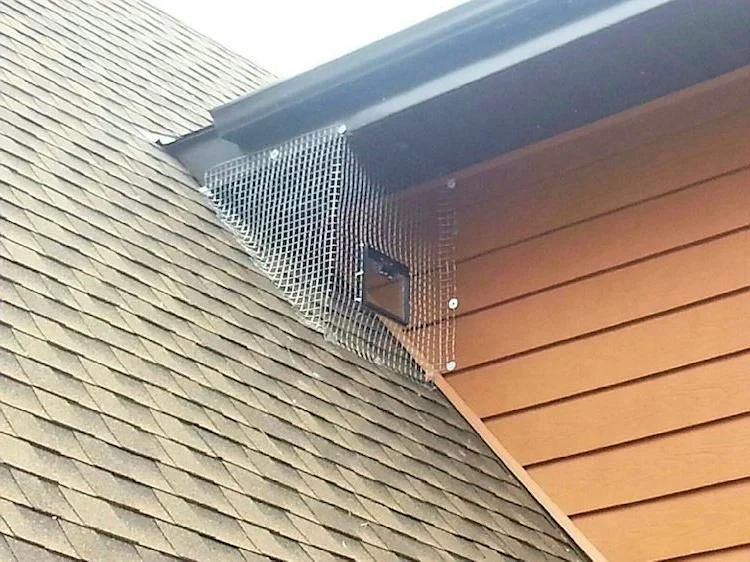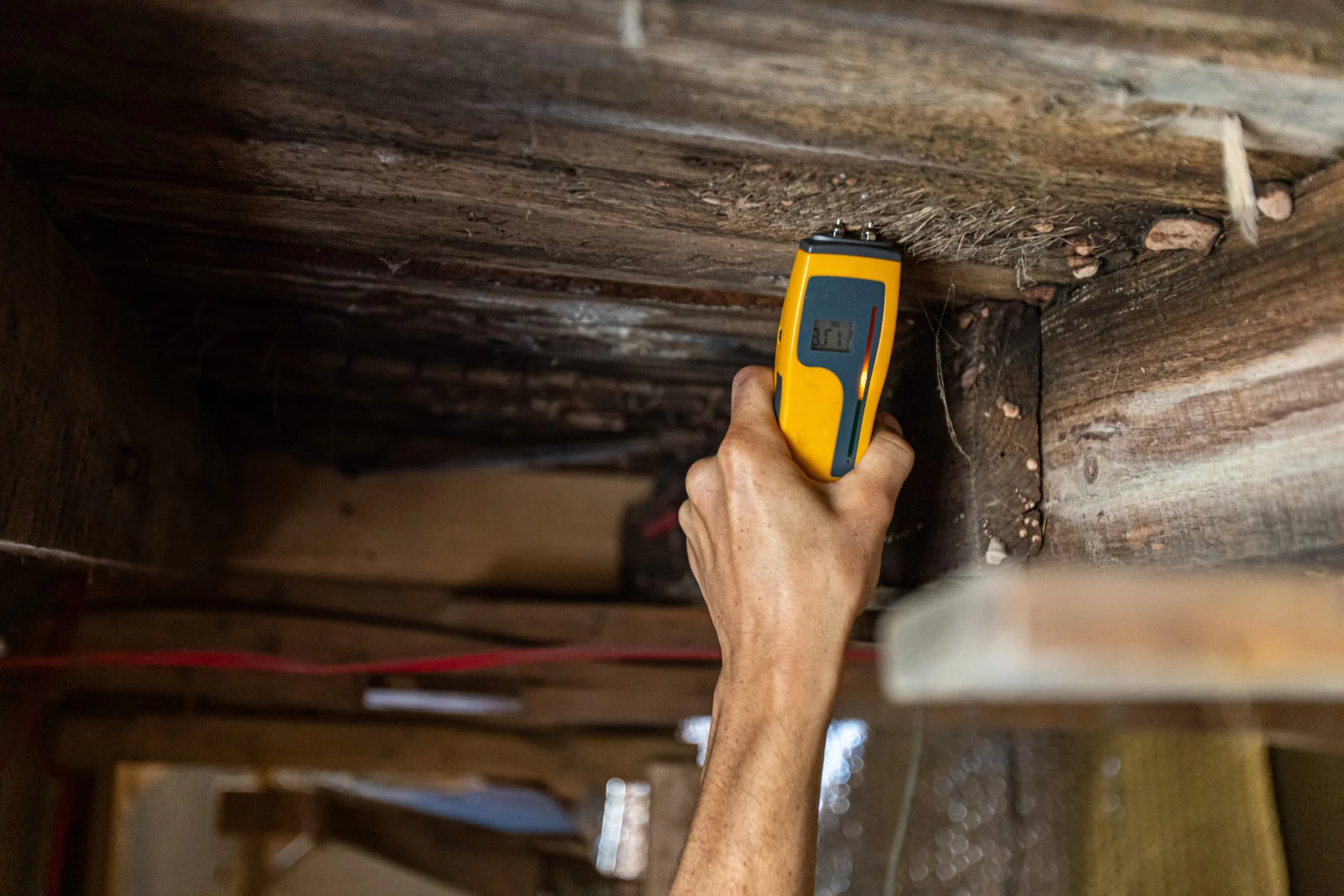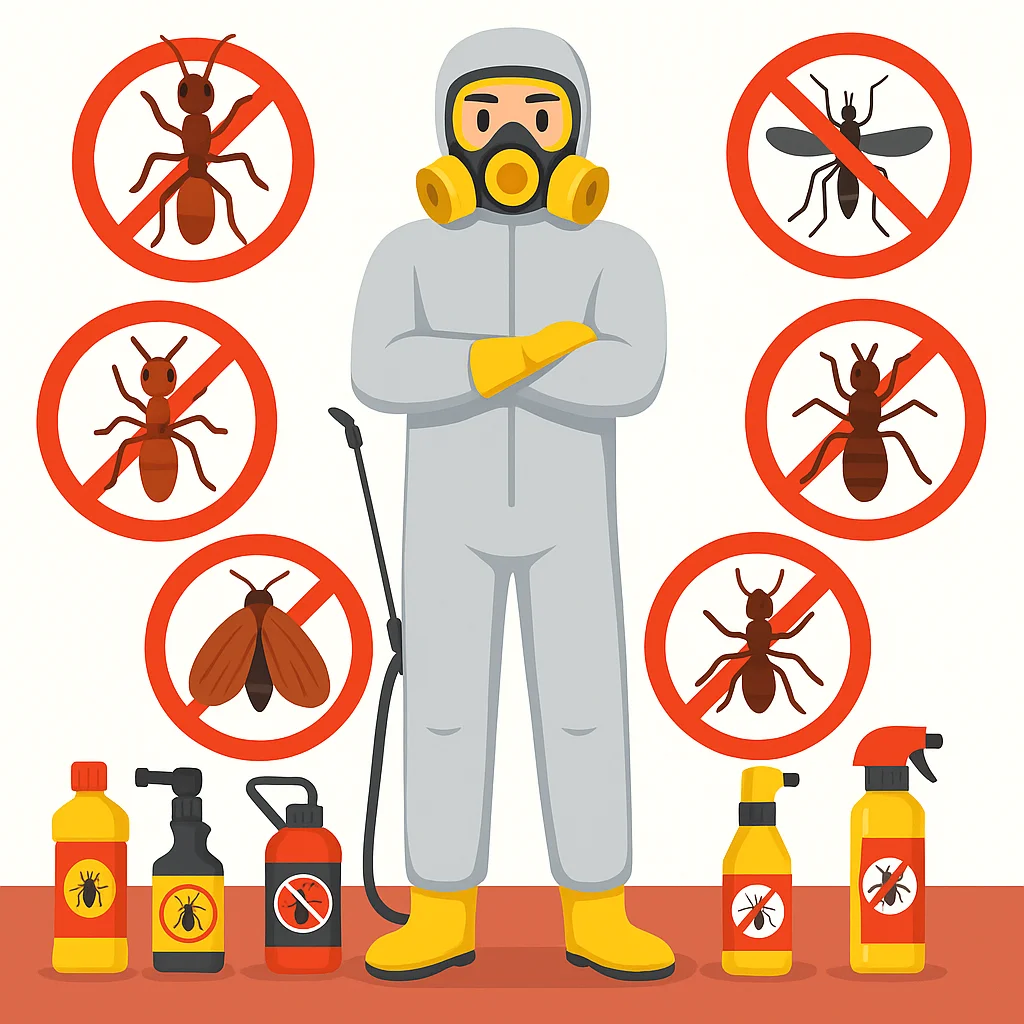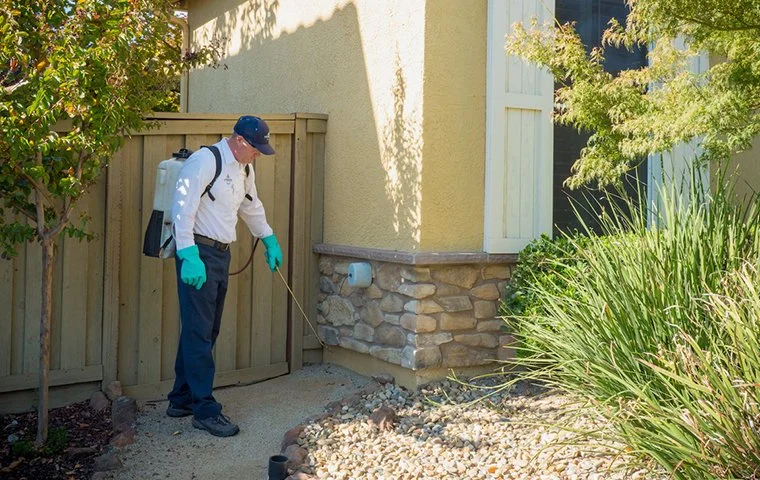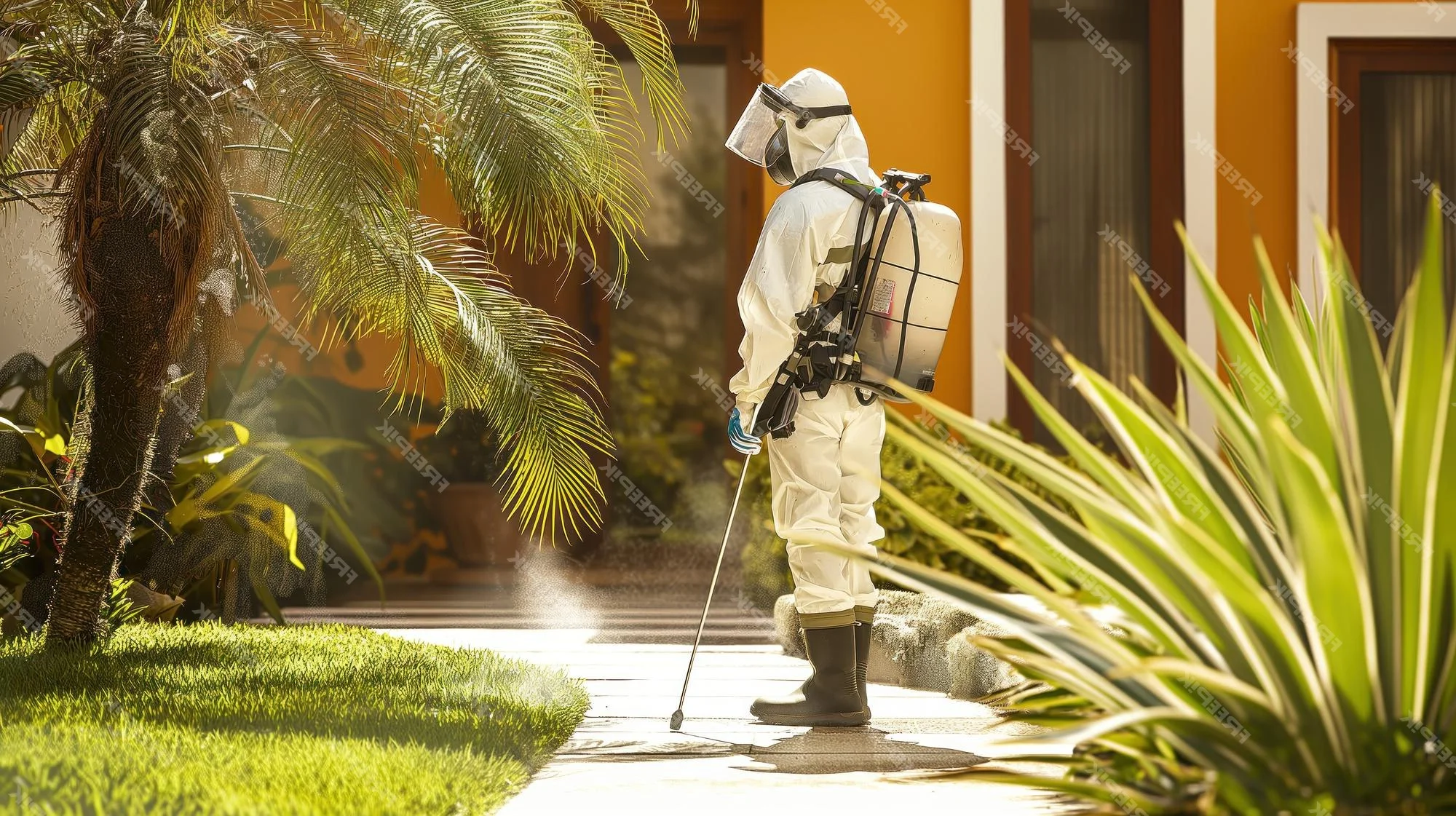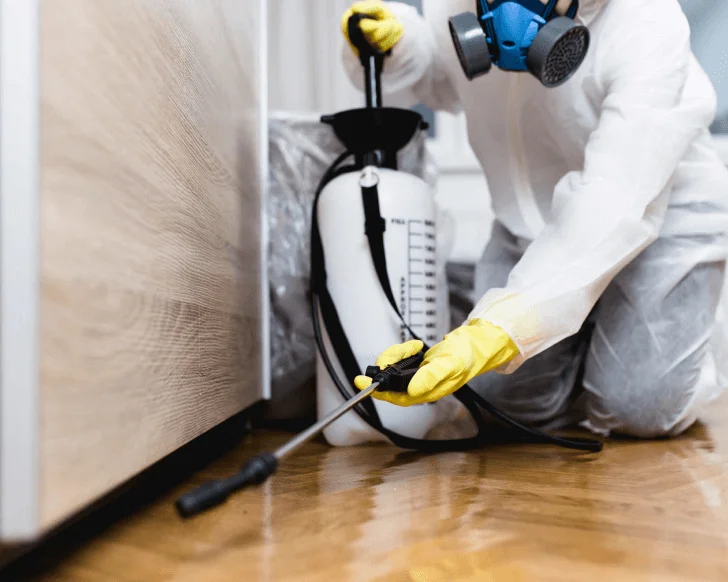From the urban landscape of Boston to the coastal communities of Cape Cod and the rural hills of the Berkshires, Massachusetts presents unique pest challenges shaped by the state's diverse environments, historic architecture, and distinctive seasons. The Bay State's position in New England—featuring cold winters, humid summers, and dramatic seasonal transitions—creates specialized conditions requiring regionally-appropriate pest management strategies. Effective pest control in Massachusetts combines understanding of these northeastern factors with targeted approaches addressing both year-round infestations and seasonal invaders.
Properties throughout Massachusetts face varied pest pressures that can compromise structural integrity, affect health, impact the state's vital tourism and education sectors, and diminish quality of life. Whether protecting historic Boston brownstones from carpenter ants, managing ticks in suburban recreational areas, or preventing rodent invasions in urban centers, local professional exterminators provide essential regional expertise. This guide explores common Massachusetts pest challenges, eco-friendly pest solutions effective in the state's environmentally-conscious communities, and why the Bay State's distinctive seasonal patterns and architectural heritage make professional knowledge particularly valuable for lasting protection.
Dealing with persistent Massachusetts pests? Our Bay State specialists offer
emergency pest control
24/7 and comprehensive
property inspections throughout Massachusetts.
Contact us today for prompt assistance!
Pest Control Challenges Specific to Massachusetts
Massachusetts' unique environment creates distinctive pest control challenges that require specialized approaches. Here's why pest management in the Bay State demands expert attention:
-
Historic architecture Massachusetts boasts some of America's oldest buildings, with structures dating from colonial times to various historical periods. From Boston's brownstones to Federal-style homes in Salem and colonial structures in Concord, these historic buildings often incorporate construction methods and materials particularly vulnerable to certain pest species, requiring specialized protection approaches that respect both preservation requirements and effective pest management.
-
Dramatic seasonal transitions The state experiences intense seasonal changes—from frigid winters to warm, humid summers—creating distinct pest pressure cycles throughout the year. Fall and spring transitions trigger significant pest movement as species seek winter shelter or emerge from dormancy, creating predictable but intense invasion periods requiring strategic management approaches.
-
Diverse ecosystems Massachusetts encompasses urban centers, expansive coastline, dense forests, and agricultural areas—all within a relatively compact geographic area. This ecological diversity creates overlapping pest habitats where species typically confined to specific environments can easily migrate between zones, creating complex management challenges requiring comprehensive approaches addressing multiple pest pressures simultaneously.
-
Urban density Greater Boston ranks among the nation's most densely populated regions, creating urban pest dynamics that differ significantly from suburban and rural areas. High-density housing, extensive infrastructure, and concentrated food service operations support established pest populations requiring specialized urban management strategies distinct from approaches effective in less developed regions.
-
Coastal influences The state's extensive Atlantic coastline—from the North Shore through Boston Harbor to Cape Cod and the Islands—creates specialized conditions where maritime factors affect both building materials and pest behavior. Coastal properties face unique challenges including salt air deterioration creating pest entry points, sand-based soils affecting termite behavior, and distinct seasonal invasion patterns influenced by coastal weather patterns.
Understanding these Massachusetts-specific challenges is crucial for effective pest management that protects properties while respecting both historic preservation needs and the state's strong environmental values. Professional pest control services develop customized treatment plans addressing these regional factors, providing targeted protection for the Bay State's distinctive conditions.
Common Pests in Massachusetts
Massachusetts' diverse environments support numerous pest species that impact properties differently based on location, architectural style, and surrounding ecology. Here are the most common invaders troubling the Bay State:
Carpenter Ants
Professional inspecting for carpenter ant damage in a Massachusetts property
Massachusetts faces significant pressure from carpenter ants, with several species threatening structures throughout the state. Unlike termites (which are less common in Massachusetts), carpenter ants excavate galleries in wood to create nesting spaces rather than consuming it. However, their damage can be equally destructive over time, particularly in older structures, homes near wooded areas, and properties with moisture issues. These large black ants establish both parent and satellite colonies, with the primary nest typically located outdoors in decaying wood while satellite colonies may develop within structural components.
Professional carpenter ant management combines thorough inspection identifying nest locations, targeted treatments eliminating active colonies, correction of moisture conditions supporting infestations, and preventative measures addressing potential future entry points. Massachusetts' abundant forests and mature urban tree canopy provide ideal natural habitat for these wood-destroying insects, creating continuous pressure on structures throughout the state. Early intervention provides critical protection against these persistent pests before significant structural damage occurs.
Rodents
Rodent exclusion work being performed on a Massachusetts property
Massachusetts properties contend with significant rodent challenges, with pressure patterns varying widely between urban centers, suburban communities, and rural areas. Boston and other cities face substantial urban rodent populations requiring specialized management approaches, while suburban areas experience different pressures from house mice and occasionally roof rats in established neighborhoods. These persistent pests create both property damage concerns through their gnawing activities and potential health risks through contamination and disease transmission.
Effective rodent control combines thorough inspection identifying entry points and activity patterns, strategic exclusion work preventing access, targeted trapping or baiting programs eliminating existing populations, and preventative measures addressing attractants and potential future entry routes. Massachusetts' cold winters drive significant fall invasion behavior as rodents aggressively seek indoor shelter, making preventative exclusion work particularly important before seasonal temperature drops. The state's historic architecture often presents unique rodent entry challenges requiring specialized exclusion techniques appropriate for irreplaceable building features.
Ticks
Professional applying tick control treatment to a Massachusetts property
Massachusetts faces substantial challenges from several tick species, with blacklegged (deer) ticks of particular concern due to their role in transmitting Lyme disease. The state consistently reports significant Lyme disease cases, particularly in areas with extensive woodland habitats supporting both ticks and their host species. These parasitic arachnids thrive in Massachusetts' diverse landscape, especially in areas where suburban development interfaces with natural wooded environments, creating extensive exposure risk during outdoor activities.
Professional tick control combines property-wide treatments targeting adult ticks and nymphs, landscape management reducing harboring vegetation, and creation of protective barriers between woodland areas and active use spaces. Service timing follows Massachusetts' specific tick activity patterns, with treatments scheduled during spring emergence and continuing through fall activity periods. Properties bordering conservation lands, state forests, or wooded areas face particular challenges requiring comprehensive management approaches, while recreational properties benefit from targeted protection of high-use outdoor spaces ensuring safe enjoyment throughout tick season.
Bed Bugs
Thorough bed bug inspection being conducted in a Massachusetts home
Massachusetts faces ongoing bed bug challenges, with infestations reported throughout the state but particularly concentrated in urban centers with high population density, multi-unit housing, and significant travel activity. Boston's role as an educational and tourist hub creates additional pressure through constant introduction potential from domestic and international travelers. These persistent parasitic insects cause both physical discomfort through their feeding activities and psychological stress for affected households, requiring prompt, thorough intervention.
Professional bed bug control utilizes a multi-faceted approach combining thorough inspection with specialized detection methods, targeted treatment of infested areas using appropriate techniques for the specific situation, and comprehensive follow-up ensuring complete elimination. Massachusetts' high proportion of multi-unit housing creates specialized challenges where infestations can spread between adjoining units, requiring coordinated treatment approaches addressing entire structures rather than individual apartments. The state's historic buildings often present unique treatment challenges requiring specialized approaches respecting architectural features while effectively eliminating these persistent pests.
Seasonal Invaders
Professional treating entry points for seasonal invaders
Massachusetts properties contend with predictable seasonal invasion cycles as various insect species seek shelter before winter or emerge during spring warmth. Common fall invaders include stink bugs, cluster flies, ladybugs, and western conifer seed bugs that congregate on sun-warmed exterior walls before moving indoors as temperatures drop. These occasional invaders rarely cause physical damage but create significant nuisance through their presence, particularly when appearing in living spaces during winter warm periods.
Effective seasonal pest management combines preventative exterior treatments before invasion periods, strategic exclusion work sealing potential entry points, and as-needed interior services addressing established populations. Massachusetts' dramatic seasonal transitions create distinct invasion windows requiring timely intervention, with preventative services ideally completed several weeks before typical movement periods. Professional management provides both immediate relief from existing invaders and long-term protection through comprehensive prevention strategies addressing these predictable yet persistent seasonal challenges.
Eco-Friendly Pest Control for Massachusetts Properties
Massachusetts' strong environmental consciousness and treasured natural resources—from coastal ecosystems to urban greenspaces and western forests—create significant demand for environmentally responsible pest management approaches. Modern eco-friendly pest solutions protect homes and businesses while minimizing environmental impact through targeted application methods, reduced-risk product selections, and integrated management strategies addressing root causes rather than symptoms alone.
Professional services implement Integrated Pest Management (IPM) principles prioritizing inspection, exclusion, habitat modification, and biological controls when possible, reserving targeted product applications as a final component within comprehensive management programs. This sustainable methodology particularly benefits properties near Massachusetts' sensitive watersheds, conservation lands, and urban greenspaces while providing effective protection aligned with the state's strong environmental protection values.
Environmental Commitment
Massachusetts pest control specialists understand the importance of protecting the state's natural resources and public health, implementing management approaches that effectively address pest issues while preserving the Bay State's environmental integrity, outdoor recreation areas, and watershed quality.
Below is a comparison of different eco-friendly pest control methods highlighting their benefits for Massachusetts properties:
| Treatment Method |
Benefits |
Ideal Use in Massachusetts |
| Targeted Application Methods |
Places minimal product amounts only where pests travel, harbor, or enter structures, dramatically reducing overall chemical use while maintaining effectiveness.
|
Properties near Massachusetts' sensitive water resources, including coastal areas, river corridors, and wetland zones; homes with wells or other specific water considerations; and locations within watersheds supporting drinking water reservoirs where environmental stewardship is essential.
|
| Exclusion Techniques |
Creates physical barriers preventing pest entry without any chemical use, providing long-term protection with zero environmental impact or ongoing maintenance requirements.
|
Rodent prevention in urban Boston neighborhoods; sealing against seasonal invaders before fall temperature drops; protecting historic structures against pest entry while preserving architectural integrity; and weatherizing buildings for both energy efficiency and pest prevention—particularly important in Massachusetts' energy-conscious communities.
|
| Habitat Modification |
Addresses environmental conditions supporting pest populations through landscape adjustments, moisture management, and harborage reduction without requiring product applications.
|
Tick management in suburban properties; mosquito prevention in properties with water features; carpenter ant prevention through proper wood management; and modification of landscape features encouraging rodent activity near structures—particularly valuable for Massachusetts' emphasis on natural landscape management.
|
| Biological Controls |
Utilizes natural predators, beneficial nematodes, or microbial agents to manage pest populations in environmentally sensitive ways with minimal impact on non-target organisms.
|
Garden pest management in environmentally conscious communities; mosquito control in sensitive watershed areas; and innovative approaches supporting Massachusetts' leadership in environmental protection through reduced-impact methods that maintain ecological balance.
|
| Cold Treatments |
Utilizes extreme cold rather than chemical methods to eliminate certain pests, particularly effective for bed bugs and appropriate for Massachusetts' seasonal climate patterns.
|
Bed bug treatments in sensitive environments including schools, healthcare facilities, and multi-unit housing; elimination of pests in materials where chemical treatments are inappropriate; and specialized applications where traditional methods would impact sensitive populations or valuable items.
|
Specialized Pest Control Services in Massachusetts
Historic Property Protection
Massachusetts boasts some of America's most treasured historic buildings, from colonial-era structures to Federal, Victorian, and other significant architectural styles. Our specialized historic property protection programs address the unique challenges these irreplaceable buildings face while respecting both preservation requirements and effective pest management needs.
Service approaches combine specialized inspection protocols identifying vulnerabilities in period-specific construction elements, customized treatment methods appropriate for historic materials, and preventative strategies addressing the unique structural characteristics of these important properties. Programs utilize non-invasive monitoring systems, targeted applications minimizing impact on original features, and documentation supporting preservation requirements. Massachusetts' wealth of historic districts, landmark properties, and architectural treasures benefit from these specialized approaches protecting both structural integrity and irreplaceable features while effectively managing the distinctive pest challenges these properties face.
Comprehensive Tick Management
Massachusetts' position as a high-risk area for tick-borne diseases requires comprehensive management programs addressing both immediate protection needs and long-term risk reduction. Our specialized tick management services utilize targeted application methods focusing on primary tick habitation zones while implementing environmentally responsible approaches respecting Massachusetts' conservation values.
Treatment protocols combine perimeter barrier applications, focused habitat modification reducing tick survival conditions, and establishment of protective zones between wooded areas and active use spaces. For suburban properties bordering conservation land, comprehensive programs provide protection throughout Massachusetts' extended tick season with particular emphasis on spring emergence and fall activity periods. Educational components help property owners understand tick behavior patterns, personal protection measures, and landscape maintenance practices supporting ongoing tick management goals, particularly important in the state's active outdoor recreation culture.
Residential & Commercial Pest Control Throughout Massachusetts
Residential Pest Protection
Massachusetts homes face diverse pest challenges influenced by location, architectural style, and surrounding environment. Residential pest protection programs address these varied needs with customized approaches for different property types, from Boston's brownstones and Cambridge triple-deckers to suburban developments, Cape Cod vacation homes, and rural properties throughout the state.
Professional services offer comprehensive protection against Massachusetts' most common household pests, with particular emphasis on managing carpenter ants in wooden structures, controlling rodent populations in urban and suburban settings, addressing ticks in recreational properties, and preventing seasonal invaders during fall and spring transition periods. Treatment schedules align with Massachusetts' distinct seasonal pest cycles, providing targeted intervention during key pressure periods while maintaining consistent protection throughout the year.
Commercial Pest Control
From Boston's restaurants and hotels to healthcare facilities, educational institutions, food manufacturing operations, biotechnology centers, and retail establishments statewide, Massachusetts businesses require specialized pest management programs that protect operations, reputation, and regulatory compliance. Commercial pest control services address distinct industry challenges with targeted protocols designed for each business category.
Professional commercial services provide comprehensive documentation supporting audit requirements, discreet service scheduling minimizing operational disruption, and emergency response capabilities for time-sensitive situations. Massachusetts' vital hospitality and tourism industry particularly benefits from effective pest management protecting guest experiences, while healthcare and biotechnology facilities receive specialized protocols addressing their unique sensitivity requirements and operational standards. The state's educational institutions receive customized programs supporting both facility protection and student health, while food service operations benefit from tailored approaches meeting Massachusetts' rigorous health code requirements.
From residential pest protection plans to customized
commercial pest control solutions, we have properties throughout Massachusetts covered –
schedule your service now and keep your
property pest-free throughout every season!
Why Choose Local Experts in Massachusetts?
When it comes to protecting your Massachusetts property from pests, working with local experts offers distinct advantages. A local pest control company understands the region's specific challenges and truly cares about the communities they serve. Here's why choosing local Massachusetts specialists makes a significant difference:
-
Knowledge of regional pest patterns Local technicians comprehend how Massachusetts' diverse regions—from Greater Boston to the Cape and Islands, Pioneer Valley, and Berkshire Hills—experience different pest pressures and seasonal cycles. This regional expertise allows for precisely targeted treatments and timing based on local experience rather than generic approaches used by national companies unfamiliar with Bay State specifics.
-
Understanding of Massachusetts architecture Local experts are familiar with the state's distinctive architectural styles and construction methods—from triple-deckers and brownstones to Cape Cod cottages, Federal-style homes, and colonial structures. This specialized knowledge helps identify vulnerable areas and implement effective protection strategies specifically suited to each property type.
-
Familiarity with local regulations Massachusetts maintains specific regulations regarding pesticide applications, historic district requirements, watershed protections, and coastal zone management. Local pest professionals navigate these requirements daily, ensuring all services remain fully compliant with state and municipal ordinances while effectively addressing pest concerns throughout the Commonwealth's different jurisdictional areas.
-
Community and environmental commitment Massachusetts' strong environmental consciousness and community-focused values align perfectly with local pest control companies invested in the same communities they serve. This shared commitment supports implementation of reduced-impact methods, environmentally responsible practices, and sustainable approaches respecting both effective pest management and Massachusetts' conservation priorities.
-
Weather-responsive service timing Massachusetts' variable weather patterns require flexible service scheduling adapting to changing seasonal conditions. Local providers understand these patterns intimately, implementing services when environmental conditions support maximum effectiveness rather than following rigid calendar schedules that might miss critical intervention windows or apply treatments during inappropriate conditions.
By choosing local professional exterminators with deep knowledge of Massachusetts' specific pest challenges, property owners receive more effective, regionally-appropriate solutions than generic approaches used by those unfamiliar with the Bay State's unique conditions and seasonal patterns.
Regional Pest Control Services Throughout Massachusetts
Different regions of Massachusetts face unique pest challenges based on geography, development patterns, and environmental features. Professional pest control specialists understand these regional differences:
Greater Boston
Including: Boston, Cambridge, Somerville, Newton, Brookline, Quincy, Waltham
Massachusetts' largest urban area experiences distinctive pest challenges influenced by population density, historic architecture, and established infrastructure. Boston's older neighborhoods contend with significant rodent pressure requiring specialized urban management approaches, while the region's diverse housing stock—from historic brownstones to triple-deckers and modern developments—creates varied structural vulnerabilities. The area's substantial student population creates periodic bed bug concerns through frequent relocation activities, while commercial properties throughout the metropolitan region face ongoing protection needs supporting operational continuity and customer experience quality. The region's position along waterways and harbor areas creates moisture-related pest pressures in certain zones, while extensive parklands and university campuses harbor tick populations requiring specialized management approaches.
North Shore/Merrimack Valley
Including: Salem, Gloucester, Newburyport, Lowell, Lawrence, Haverhill, Andover
This region combines historic coastal communities with former industrial centers and evolving suburban areas creating diverse pest management needs. Historic districts in Salem, Newburyport, and other communities require specialized approaches respecting architectural heritage while addressing pest vulnerabilities in centuries-old structures. The region's coastal areas face maritime-influenced pest pressures including moisture conditions supporting carpenter ants, while inland areas along the Merrimack River experience different dynamics where agricultural transitions and waterway influence create diverse pest habitats. The area's mill buildings and industrial conversions present specialized management challenges where original construction features interact with modern usage patterns, creating unique pest vulnerabilities requiring targeted management approaches.
Cape Cod & Islands
Including: Hyannis, Falmouth, Provincetown, Nantucket, Martha's Vineyard, Chatham, Brewster
Massachusetts' premier coastal vacation region faces distinctive pest management challenges influenced by its maritime environment, sandy soils, seasonal population fluctuations, and unique architectural landscape. The region's beachfront positioning creates substantial tick and mosquito pressures requiring comprehensive management for comfortable outdoor enjoyment. Many properties experience significant seasonal vacancy patterns creating specialized pest vulnerabilities during off-season periods, requiring monitoring approaches addressing potential problems before returning property owners discover them. The area's distinctive Cape Cod and coastal architectural styles incorporate construction methods creating specialized pest entry points and harborage opportunities different from inland structures. The region's tourism focus means hospitality properties require rigorous protection programs supporting both guest experiences and operational requirements, while sand-based soils create different termite behavior patterns than those observed in inland clay soils.
Western Massachusetts
Including: Springfield, Northampton, Amherst, Pittsfield, Greenfield, Great Barrington, Westfield
Western Massachusetts combines urban centers with college communities, agricultural areas, and rural properties creating diverse pest management needs across varied landscapes. The region's substantial educational institutions require specialized programs addressing both structural protection and residential quality considerations for student populations. Agricultural transitions from Connecticut River Valley fertility to Berkshire highlands create diverse pest habitats, while the area's recreational focus supports significant tick populations requiring management in outdoor activity zones. The region's older urban centers including Springfield face different challenges than college-focused communities like Amherst and Northampton, requiring targeted approaches addressing each community's specific needs. Western Massachusetts' somewhat greater seasonal temperature fluctuations compared to coastal regions create slightly different pest activity patterns requiring regionally-appropriate timing for optimal management results.
Top Cities for Pest Control in Massachusetts
Professional pest control services are available throughout the Bay State. Below are some of the major Massachusetts cities where quality pest management is especially important:
Boston
As Massachusetts' largest city, Boston presents diverse pest management challenges across its varied neighborhoods and architectural landscape. The city's historic districts feature brownstones and century-old buildings requiring specialized protection approaches respecting both preservation requirements and effective pest management. Boston's density creates significant rodent pressure, particularly in older neighborhoods where established infrastructure and building design provide ideal harborage conditions. The city's substantial student population creates periodic bed bug concerns through frequent relocation activities, while commercial facilities throughout the urban core require comprehensive protection supporting both operational continuity and customer experience quality, particularly in the vital food service and hospitality sectors. Boston's position along harbor and river areas creates moisture-related pest issues while supporting mosquito breeding in certain zones. Comprehensive pest management in this dynamic urban environment requires specialized approaches addressing the city's diverse architectural characteristics and extensive environmental influences.
Worcester
As Massachusetts' second-largest city, Worcester combines historic neighborhoods, educational institutions, and evolving urban development creating diverse pest management needs. The city's industrial heritage has left a legacy of mill buildings and workforce housing requiring specialized approaches addressing their unique construction features and potential pest vulnerabilities. Worcester's position as an educational center with multiple colleges creates periodic bed bug concerns through seasonal student turnover, while the city's diverse housing stock—ranging from Victorian-era homes to multi-family structures and modern developments—requires targeted approaches for each architectural style. Commercial properties throughout Worcester face protection challenges supporting operational requirements and customer experiences, particularly in the growing restaurant and hospitality sectors. The city's position in central Massachusetts creates somewhat different seasonal pest patterns than coastal communities, with slightly more pronounced temperature variations affecting pest activity cycles. Effective pest management in Worcester requires balancing urban pest dynamics with the city's evolving identity, providing protection that supports both existing properties and ongoing revitalization initiatives.
Cambridge
As a world-renowned educational center, Cambridge faces unique pest management challenges influenced by its dense urban character, significant student population, and historic architectural landscape. The city experiences substantial seasonal population fluctuations through academic cycles creating periodic pressure spikes, particularly for bed bug management during move-in periods. Cambridge's diverse housing stock—from historic homes near Harvard Square to triple-deckers and modern developments along the Charles River—requires customized approaches addressing each property type's specific vulnerabilities. The city's vibrant restaurant and retail sectors require comprehensive protection supporting both operational requirements and customer experiences, while numerous research facilities and laboratories need specialized programs meeting their unique sensitivity requirements. Residential properties throughout Cambridge contend with urban pest pressures including rodent activity influenced by the city's density and established infrastructure. Effective pest management in Cambridge balances these challenging urban dynamics with the city's progressive environmental values, implementing effective yet sustainable approaches appropriate for this environmentally conscious community.
Cape Cod Properties
Cape Cod's distinctive communities face specialized pest management considerations influenced by their coastal environment, seasonal occupancy patterns, and unique architectural styles. The region's beachfront positioning creates substantial tick pressure in natural areas, requiring comprehensive management for comfortable recreational enjoyment, while sandy soils affect termite behavior differently than inland clay conditions. Many Cape properties experience significant seasonal vacancy patterns creating specialized pest vulnerabilities during off-season periods, requiring monitoring approaches addressing potential problems before property owners return for summer seasons. The area's distinctive Cape Cod architectural style incorporates construction methods creating specialized pest entry points and harborage opportunities different from other Massachusetts structures. The region's tourism focus means hospitality properties require rigorous protection programs supporting both guest experiences and operational requirements, while salt air exposure creates moisture-related challenges affecting wood components in many structures. Comprehensive pest management for Cape properties addresses these coastal challenges through specialized approaches respecting both the region's environmental sensitivity and its vital tourism economy.
Massachusetts Service Coverage Map
Seasonal Pest Guide for Massachusetts
Spring (March-May)
- Carpenter ants become active
- Overwintering pests emerge from dormancy
- Tick activity increases dramatically
- Termite swarms may appear
Recommendation: Schedule carpenter ant inspections as temperatures warm, implement tick management before outdoor activity increases, and address emerging overwintering pests as they become active.
Summer (June-August)
- Mosquito activity peaks
- Tick populations remain highly active
- Carpenter ant workers forage extensively
- Stinging insect nests reach maximum size
Recommendation: Maintain tick and mosquito management for outdoor areas, monitor for carpenter ant activity in structures, and address stinging insect nests before they reach peak population.
Fall (September-November)
- Rodents seek indoor shelter
- Stink bugs and other overwintering insects invade
- Mice migration indoors accelerates
- Spiders become more visible indoors
Recommendation: Implement rodent exclusion before temperature drops, apply preventative treatments for overwintering invaders, and seal entry points against seasonal pests seeking shelter.
Winter (December-February)
- Indoor rodent activity increases
- Overwintering pests emerge during warm periods
- Stored product pests develop in pantries
- Occasional cluster fly activity during warm spells
Recommendation: Focus on interior pest management for rodents and overwintering invaders, while maintaining monitoring for wood-destroying insects that remain active within heated structures.
Massachusetts' dramatic seasonal transitions create distinct pest pressure cycles requiring regionally-appropriate timing for effective management. Professional pest control services adjust their strategies throughout the year to address these predictable patterns, providing targeted protection during key activity periods while maintaining consistent prevention during quieter cycles.
What Our Massachusetts Clients Say
"After struggling with carpenter ants in our Cambridge Victorian for years, their comprehensive inspection found the parent colony in a stump behind our garage. Their targeted treatment plan eliminated the problem completely without excessive chemicals near our organic garden."
- Rebecca T., Cambridge
★★★★★
"Living near conservation land in Newton meant constant tick worries for our kids and dog. Their property-wide tick management program has transformed our outdoor experience—we can actually enjoy our backyard again without the constant worry about Lyme disease."
- David M., Newton
★★★★★
"As a restaurant owner in Boston's North End, reliable pest prevention isn't optional—it's essential for our reputation. Their commercial program provides consistent protection with discreet service that never disrupts our guests, while their documentation makes health inspections completely stress-free."
- Anthony R., Boston
★★★★★
Frequently Asked Questions
What makes Massachusetts' carpenter ant problems different from termites in other states?
Massachusetts' carpenter ant challenges differ significantly from termite problems prevalent in southern states due to several key factors: First, carpenter ants excavate wood rather than consuming it, creating distinctly different damage patterns where wood particles (frass) are pushed out of galleries rather than being digested. This behavior creates visible evidence different from termite damage, often appearing as small piles of sawdust-like material near wooden elements. Second, Massachusetts' climate creates seasonal activity patterns where carpenter ants become highly visible during spring emergence, often leading to discovery of established colonies that have been developing for months or years. Unlike termites which may remain hidden until substantial damage occurs, carpenter ants frequently announce their presence through visible worker activity. Third, these ants typically require moisture-compromised wood to establish initial infestations, making proper moisture management an essential component of prevention strategies particularly important in Massachusetts' older homes where roof leaks, plumbing issues, or poor drainage create vulnerable conditions. Fourth, carpenter ants establish parent colonies outdoors with satellite colonies in structures, requiring comprehensive treatment approaches addressing both structural infestations and exterior parent colonies often located in landscape features like stumps, woodpiles, or hollow trees common in Massachusetts' wooded suburban landscapes. Fifth, effective management requires addressing specific Massachusetts species including the black carpenter ant (Camponotus pennsylvanicus) and its relatives uniquely adapted to the region's climate and building styles. Our carpenter ant management programs account for these Massachusetts-specific factors through comprehensive inspection protocols identifying both structural and landscape colony locations, targeted treatment methods appropriate for each infestation type, moisture mitigation strategies addressing underlying attractants, and preventative approaches providing year-round protection against these persistent wood-destroying insects.
How should historic Boston properties address pest management needs?
Historic Boston properties require specialized pest management approaches balancing effective protection with preservation of irreplaceable architectural features. Several unique considerations guide our historic property services: First, comprehensive inspection techniques identify pest activity in period-specific construction elements like post-and-beam framing, lathe and plaster walls, brick-and-mortar foundations, and decorative woodwork not commonly found in newer construction. These specialized inspections utilize both visual assessment and advanced technologies including moisture meters, thermal imaging, and fiber optic cameras accessing voids without disturbing original materials. Second, treatment planning incorporates preservation-minded methods minimizing alterations to original materials, with particular attention to registered historic properties and designated district buildings under strict preservation guidelines. Treatment protocols utilize targeted applications addressing active pest areas while avoiding unnecessary treatment of intact historic components. Third, for Boston's numerous brownstones and row houses, specialized approaches address the unique challenges of attached structures where management must prevent pest movement between adjoining properties while respecting party wall integrity and shared architectural features. Fourth, moisture management recommendations balance modern control needs with historic preservation considerations, implementing solutions appropriate for centuries-old construction methods that inherently differ from contemporary moisture management approaches. Fifth, documentation systems support both effective pest management and historic preservation requirements, providing detailed records appropriate for historically significant properties within Boston's numerous landmark districts. By blending modern pest management science with preservation-minded techniques, our programs protect Boston's historic treasures from pest damage while respecting their architectural and cultural significance—particularly important in neighborhoods like Beacon Hill, Back Bay, South End, and Charlestown where irreplaceable architectural heritage remains a vital community asset.
What specialized considerations apply to Cape Cod vacation properties?
Cape Cod vacation properties face distinctive pest management challenges requiring specialized approaches different from year-round mainland residences. Several unique considerations guide our Cape vacation property services: First, comprehensive protection programs account for periodic vacancy patterns creating specific vulnerabilities when properties remain unoccupied for extended periods, particularly during fall-to-spring transitions when pest invasion pressure peaks while monitoring capabilities decrease. Our services implement specialized monitoring systems identifying issues during vacant periods while providing continuous protection regardless of occupancy status. Second, opening and closing services provide critical inspection and preventative treatment during key transition periods, identifying issues requiring attention while implementing preventative measures before seasonal departure. These services include thorough inspection for moisture issues, rodent entry points, and emerging pest concerns requiring attention before properties stand vacant for months. Third, treatment protocols account for coastal conditions affecting both pest behavior and material longevity, including salt air exposure accelerating deterioration of building materials, sand-based soils creating different pest patterns than mainland clay soils, and maritime weather influences affecting treatment timing and effectiveness. Fourth, scheduling flexibility accommodates rental calendars and owner occupancy patterns, providing protection without disrupting valuable rental periods or owner enjoyment while maintaining properties during vacant periods when problems frequently develop unnoticed. Fifth, specialized moisture management strategies address the Cape's unique environmental factors including high humidity, salt air, and significant seasonal temperature fluctuations creating condensation issues when properties remain unheated during winter months. Our Cape Cod vacation property programs incorporate all these elements plus detailed communication systems allowing absentee owners to remain fully informed about property conditions regardless of geographic distance, providing peace of mind and comprehensive protection for these valuable seasonal investments throughout the Cape and Islands.
How should Massachusetts property owners prepare for fall rodent invasions?
Massachusetts' dramatic fall temperature transitions trigger predictable rodent invasion cycles requiring proactive preparation before these movements begin. We recommend a comprehensive approach addressing several key factors: First, thorough exterior inspection should identify potential entry points focusing on foundation penetrations, utility openings, damaged door sweeps, and roof-wall junctions where even small gaps provide rodent access once cold weather motivation intensifies. Massachusetts' older homes often present particular challenges with stone foundations, multiple renovations, and complex rooflines creating numerous potential entry routes requiring careful evaluation. Second, systematic exclusion work should seal identified vulnerabilities using appropriate materials matched to both the opening type and rodent species targeting the structure, with particular attention to proper installation techniques ensuring materials remain effective despite New England's freeze-thaw cycles and heavy snow pressure. For historic properties, specialized approaches maintain architectural integrity while preventing access through period-specific features like original windows and doors. Third, exterior habitat management reduces attractants near structures, including proper management of fall landscape clean-up (where leaf piles and yard debris provide rodent harborage), maintenance of compost systems to prevent unintentional feeding, and proper storage of seasonal items creating potential denning sites. Fourth, strategic monitoring immediately after exclusion work confirms effectiveness while identifying any remaining access points requiring additional attention before full winter conditions develop. Fifth, interior inspection ensures pantry areas, utility spaces, and storage zones implement proper organization and food storage practices preventing resources that support rodent populations once they've gained entry. Our fall prevention programs incorporate all these elements plus customized timing based on Massachusetts' regional temperature patterns, ensuring protection is fully established before seasonal invasion behaviors intensify with the arrival of consistent colder temperatures.
Pests don't stand a chance with the right team on your side. Trust
PestControl100 for dependable pest control in Massachusetts –
contact us today and reclaim your spaces from seasonal pests and year-round invaders!


